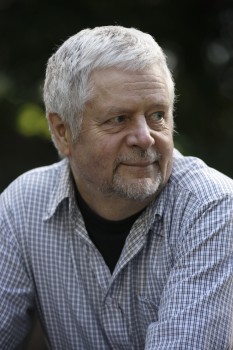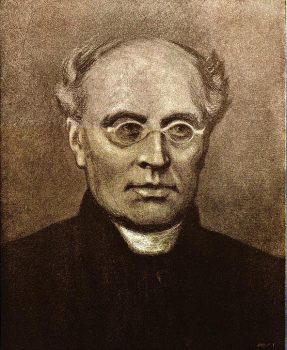Essays
The aphorism reborn
Issue 4/1986 | Archives online, Authors, Essays, Non-fiction

Markku Envall. Photo: Pertti Nisonen
With the passage of time a literary genre may continue, change or disappear. During the 1960s it was widely believed that the Finnish aphorism was dead. Modernism, which had consolidated its victory during that decade, was not favourable to the genre, and not one of the central figures of the post-war generation had touched the genre. Nevertheless, phoenix-like, the aphorism rose from the ashes, and by the 1970s it was strongly in evidence again, thanks, in the main, to just four writers, Mirkka Rekola, Paavo Haavikko, Samuli Paronen and Erno Paasilinna.
The renaissance took place between 1969 and 1972; in 1969 Mirkka Rekola’s first book of aphorisms was published, followed in 1972 by Paavo Haavikko’s. Rekola now has three books of aphorisms to her name, Haavikko four. The other two major aphorists have published one volume each. There have been a few other collections of aphorisms have appeared, but their authors are ‘merely’ aphorists, while these four are recognised as major authors in other fields too.
What was new in the renaissance of the aphorism? The question is easiest to answer in respect of the three men; Rekola is in many ways an exception. There were two major new features, one concerning meaning, the other form. The subject matter of the new writers was broader than the wisdom and teachings about life encompassed by the traditional aphorism. Their main subjects were nothing if not ambitious; the nature of the world, the progress of history, the structure of society. More…
Poetry and Patriotism
Issue 4/1985 | Archives online, Authors, Essays

J.L. Runeberg. Painting by Albert Edelfelt. 1893.
Much revered, but little read today, Johan Ludvig Runeberg (1804-1877) is famed for his patriotism and glorification of war in a just cause. Yet Finland’s national poet did not write in Finnish, and never heard a shot fired in anger. It is, perhaps, time for a reappraisal.
What did he himself think about becoming a national poet?
Enjoyed it, probably? Who wouldn’t!
Did he write what he wanted and let
the people find their own interpretation?
Or did he write what he believed
the people expected
of a national poet?
Lars Huldén, 1978
It would not be inappropriate to begin a collection of thoughts about Finland’s ‘national poet,’ Johan Ludvig Runeberg, with a biblical text, Second Samuel, 1:25: ‘How are the mighty fallen!’ Runeberg does not own the position he once did, either in the world at large or in Scandinavia; even in his home land his exceptional grandeur has been reduced or, horribile dictu, smiled at. More…
-
Currently browsing
Articles, essays and extracts from Finnish non-fiction books, in new translations
-
RSS feed
Subscribe to RSS feed for Essays
-
Archive
- June 2015
- May 2015
- April 2015
- March 2015
- February 2015
- January 2015
- December 2014
- November 2014
- October 2014
- September 2014
- August 2014
- June 2014
- May 2014
- April 2014
- March 2014
- February 2014
- January 2014
- December 2013
- November 2013
- October 2013
- September 2013
- August 2013
- July 2013
- June 2013
- May 2013
- April 2013
- March 2013
- February 2013
- January 2013
- December 2012
- November 2012
- October 2012
- September 2012
- August 2012
- June 2012
- May 2012
- April 2012
- March 2012
- February 2012
- January 2012
- December 2011
- November 2011
- October 2011
- September 2011
- August 2011
- July 2011
- June 2011
- May 2011
- April 2011
- March 2011
- February 2011
- January 2011
- December 2010
- November 2010
- October 2010
- September 2010
- August 2010
- July 2010
- June 2010
- May 2010
- April 2010
- March 2010
- February 2010
- January 2010
- December 2009
- November 2009
- October 2009
- September 2009
- August 2009
- July 2009
- June 2009
- May 2009
- April 2009
- March 2009
- February 2009
- December 2008
- November 2008
- September 2008
- June 2008
- March 2008
- December 2007
- September 2007
- June 2007
- March 2007
- December 2006
- September 2006
- June 2006
- March 2006
- December 2005
- September 2005
- June 2005
- March 2005
- December 2004
- September 2004
- June 2004
- March 2004
- December 2003
- September 2003
- June 2003
- March 2003
- December 2002
- September 2002
- June 2002
- March 2002
- December 2001
- September 2001
- June 2001
- March 2001
- December 2000
- September 2000
- June 2000
- March 2000
- December 1999
- September 1999
- June 1999
- March 1999
- December 1998
- September 1998
- June 1998
- March 1998
- December 1997
- September 1997
- June 1997
- March 1997
- December 1996
- September 1996
- June 1996
- March 1996
- December 1995
- September 1995
- June 1995
- March 1995
- December 1994
- September 1994
- June 1994
- March 1994
- December 1993
- September 1993
- June 1993
- March 1993
- December 1992
- September 1992
- June 1992
- March 1992
- December 1991
- September 1991
- June 1991
- March 1991
- December 1990
- September 1990
- June 1990
- March 1990
- December 1989
- September 1989
- June 1989
- March 1989
- December 1988
- September 1988
- June 1988
- December 1987
- September 1987
- June 1987
- March 1987
- December 1986
- September 1986
- June 1986
- March 1986
- December 1985
- September 1985
- June 1985
- December 1984
- September 1984
- June 1984
- March 1984
- December 1983
- June 1983
- March 1983
- December 1982
- September 1982
- June 1982
- March 1982
- September 1981
- June 1981
- March 1981
- December 1980
- June 1980
- March 1980
- September 1979
- June 1979
- March 1979
- December 1978
- September 1978
- June 1978
- March 1978
- December 1977
- September 1977
- March 1977
- September 1976
- March 1976
© Writers and translators. Anyone wishing to make use of material published on this website should apply to the Editors.
